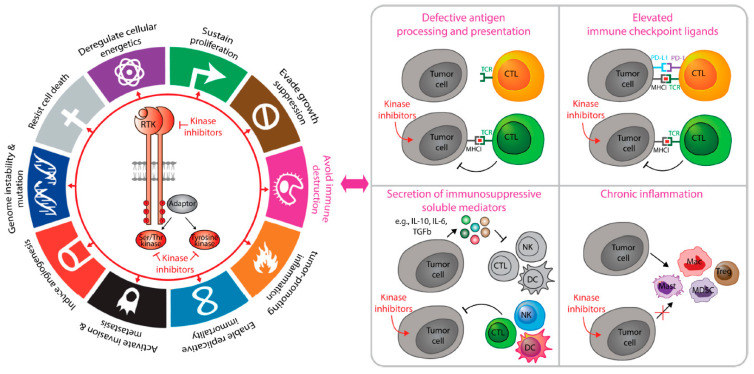Figure 1.
Pharmacological inhibition of kinase signaling relieves immunosuppression in solid malignancies. Deregulated activation of numerous kinases belonging to receptor tyrosine kinase, non-receptor tyrosine kinases, and serine/threonine kinase families induce gene expression changes that potentiate the growth and metastatic spread of solid tumors. In addition to influencing tumor cell-intrinsic processes that are essential for malignant progression, kinase signaling networks allow solid tumors to evade anti-tumor immune responses through multiple mechanisms. These include: decreasing antigen processing and presentation, increased secretion of immunosuppressive molecules, increased expression of immune checkpoint ligands, and stimulation of chronic inflammation. As such, pharmacological inhibitors of kinase signaling networks can relieve immune suppression and improve the sensitivity of solid malignancies to immune checkpoint inhibitors. Permission to use adapted figure elements originally published by Elsevier Press (Hallmarks of Cancer: The Next Generation) was obtained: License #5017191244575.

